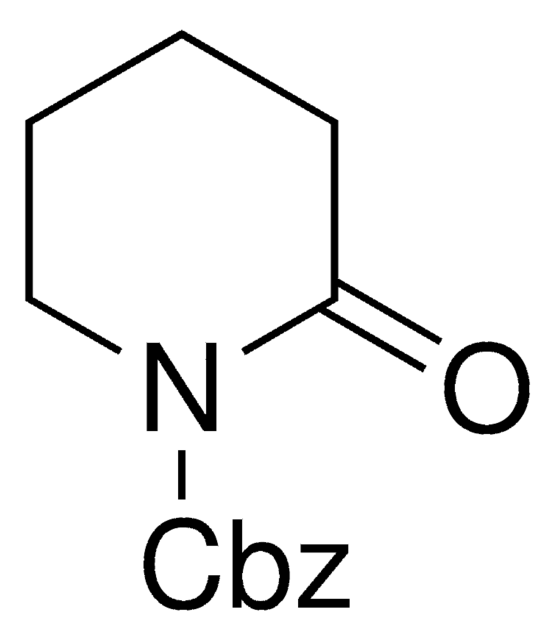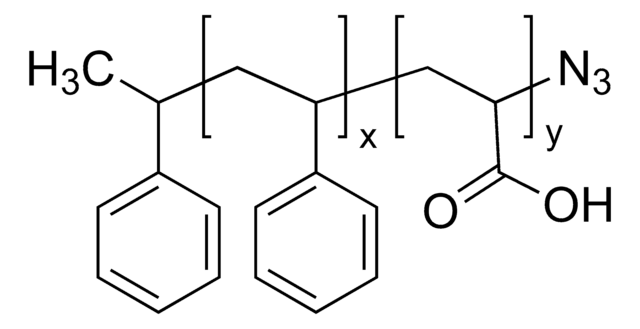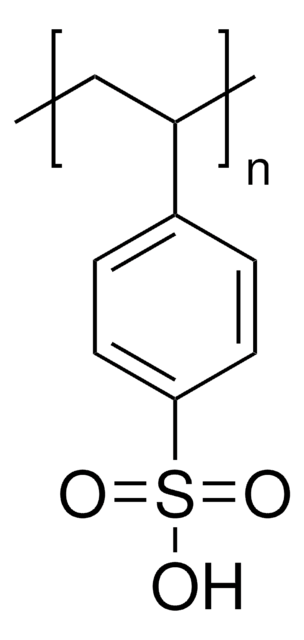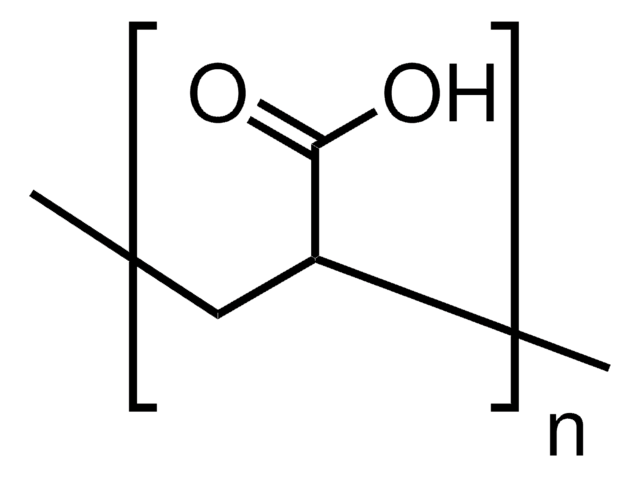747009
Poly(styrene)-block-poly(acrylic acid)
PS:PAA 30,000:2,000, PDI ≤1.1
Sinônimo(s):
PS-PAA, PS-PAA amphiphilic diblock copolymer
About This Item
Produtos recomendados
Nível de qualidade
Formulário
powder
peso molecular
Mn 1,000-2,000 (poly(acrylic acid))
Mn 27,000-31,000 (polystyrene)
Mn 28,000-33,000 (total)
PDI
≤1.1
Categorias relacionadas
Aplicação
Informações legais
Palavra indicadora
Warning
Frases de perigo
Declarações de precaução
Classificações de perigo
Eye Irrit. 2 - Skin Irrit. 2 - STOT SE 3
Órgãos-alvo
Respiratory system
Código de classe de armazenamento
11 - Combustible Solids
Classe de risco de água (WGK)
WGK 3
Ponto de fulgor (°F)
Not applicable
Ponto de fulgor (°C)
Not applicable
Escolha uma das versões mais recentes:
Certificados de análise (COA)
Não está vendo a versão correta?
Se precisar de uma versão específica, você pode procurar um certificado específico pelo número do lote ou da remessa.
Já possui este produto?
Encontre a documentação dos produtos que você adquiriu recentemente na biblioteca de documentos.
Artigos
Reversible addition–fragmentation chain transfer (RAFT) polymerization is rapidly moving to the forefront in construction of drug and gene delivery vehicles.
The development of drugs that target specific locations within the human body remains one of the greatest challenges in biomedicine today.
Wide range of functional polymers for biomedical applications have been synthesized and structurally characterized. Several classes of polymers including biodegradable polymers, hydrophilic & amphiphilic polymers, and stimuli responsive polymers have been prepared using controlled and directed functionalization via "living" polymerization such as RAFT, ionic and ring opening polymerization. Selected polymers have been studied for their structure-properties relationship. "
Global Trade Item Number
| SKU | GTIN |
|---|---|
| 747009-500MG | 4061833241134 |
Nossa equipe de cientistas tem experiência em todas as áreas de pesquisa, incluindo Life Sciences, ciência de materiais, síntese química, cromatografia, química analítica e muitas outras.
Entre em contato com a assistência técnica








